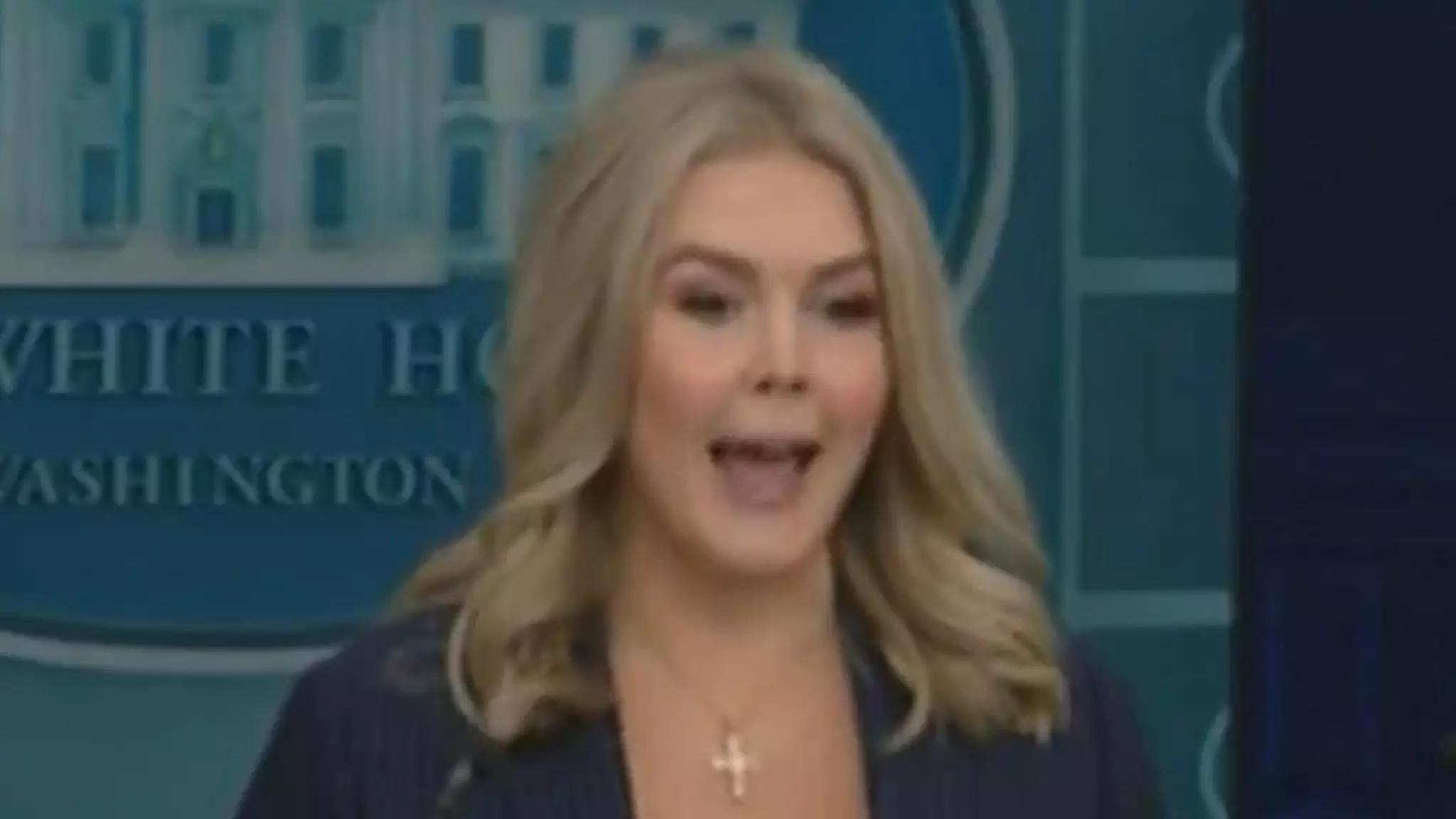The recent interactions between President Trump’s administration and major media outlets highlight a profound shift in the conventional relationship between government and journalism. With the new press secretary, Karoline Leavitt, taking a decisive stance, the administration is not shying away from exerting its influence over the narrative that reaches the public. This development is signaling an intention to confront perceived inaccuracies head-on, which in this case, revolves around the terminology used to describe the Gulf of Mexico.
Leavitt’s vehement assertion that the Gulf should be referred to as the “Gulf of America” underscores a growing trend in which the executive branch seeks to reshape the landscape of media terminology. While some may view this as a trivial dispute, the underlying implications stretch far beyond the name of a body of water. This situation raises questions about the role of the press in maintaining independence and the potential consequences of straying from the official narrative.
The Concept of Accountability
Leavitt’s comments reflect a broader philosophy that is increasingly evident in today’s political climate: the notion of accountability is being redefined. Her declaration that the administration would hold news outlets “accountable” for what they deem falsehoods points to a concerning precedent where the government positions itself as the arbiter of truth. This raises the specter of potential censorship or retaliation against media that doesn’t comply with the administration’s directives. The First Amendment, which has long been the bedrock of American democracy, stands at the crossroads as these dynamics evolve.
While Leavitt emphasized the need for factual reporting, her approach suggests a heavier hand in shaping narrative. Responding to questions regarding punitive measures for non-compliance, her affirmation was clear: there would be repercussions. The administration’s reliance on platforms like Google and Apple, which have reportedly adjusted their mapping conventions, indicates an effort to normalize this new vocabulary. The implications for reporters and news outlets are daunting, as they now find themselves navigating the murky waters of state relationships while upholding journalistic integrity.
Implications for Journalistic Integrity
The Associated Press’ defense of its terminology choice—asserting that its reports cater to a global audience—illustrates the potential disconnect between governmental directives and the realities of international journalism. This confrontation over naming conventions serves as a microcosm of larger issues: what does it mean for freedom of the press when the government seeks to control language? How does this affect the work of journalists tasked with reporting facts rather than following a prescribed narrative?
This power struggle does not merely affect media companies; it poses critical questions for democracy as a whole. For an administration that presents itself as a champion of free speech, this new approach may reflect a paradox where liberty is selectively applied. The discourse around language shapes public perception, and truth can easily be manipulated in service of political objectives.
As President Trump’s administration continues to tread this path, it raises the urgent need for a reevaluation of the relationship between governance and media. This confrontation not only challenges the principles of journalistic independence but also poses significant risks to the foundational tenets of democracy. By attempting to redefine language, the administration may inadvertently ignite a broader discussion regarding the boundaries of authority and the essential freedoms of the press. The Gulf of Mexico may just be a starting point in a much larger conversation about who controls the narrative in a world where information is power.

